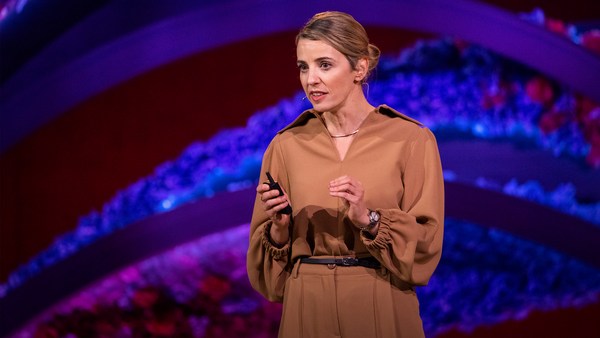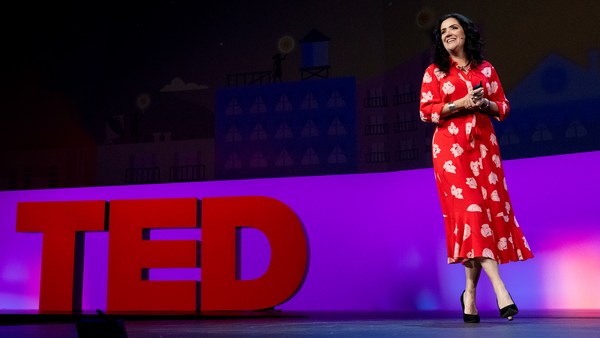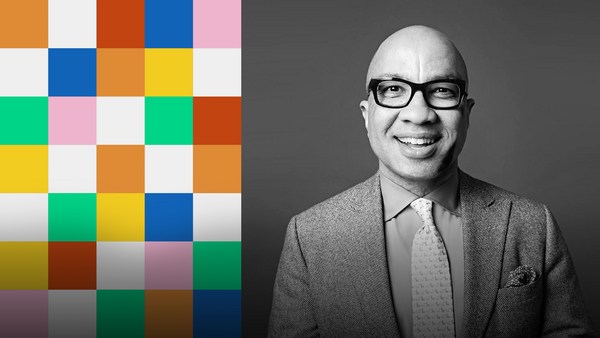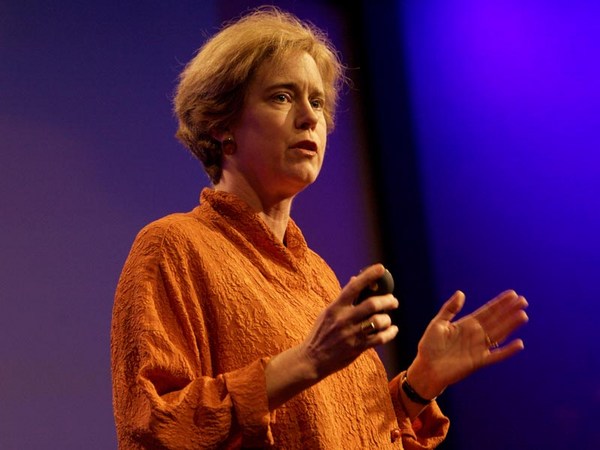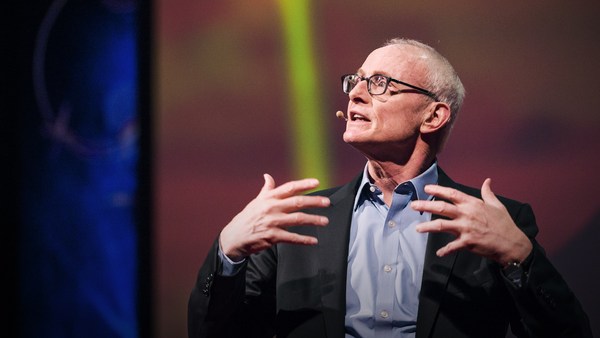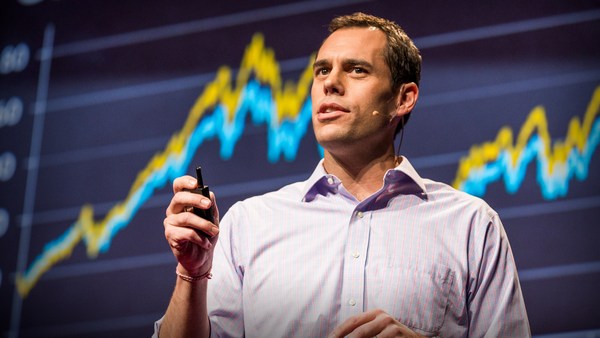I spent my whole career in the nonprofit sector. Street outreach, program management, fundraising, grant making, public policy, you name it, I've done it. I've seen a lot. And I'm a really positive person, so it's actually difficult to say this. But the way we do philanthropy right now, the way we've done it for decades, is broken. And here's how I found out.
In my early 20s, I was a frontline social worker in New York City, working with people living with HIV. Many of them had multiple chronic illnesses, and they were underhoused. So I'd spend my days, and even some nights, with them, running around the city to doctor's appointments and housing agencies. The day-to-day work was hard. But the hardest part was we never had had enough funding to do the work.
On Friday mornings, I'd go into the office to write up my case notes for the week and I'd speed past front reception, not looking at the mailboxes full of blue slips. Each blue letter marked another colleague let go because of our funding crisis. Within one month, I’d lost half my team, and my caseload ballooned from 30 to over 100.
And this is the reality for so many nonprofits. They're at the mercy of their funders. And when we look at those funders, they decide who and what gets funded. And it's almost always a mystery how they make those decisions. Nonprofits spend so much time fundraising, filling out pages and pages and pages of paperwork. And they're filling out so much paperwork that they hardly have any time to actually support communities, which is literally the thing that they're funded to do. After years of doing amazing work, improving every single metric, we'd hear things like, "I'm sorry, our major donor has switched direction. They’re no longer working and investing in HIV and AIDS.” Or, “I’m sorry, we issue grants for three years max."
This would never happen in the private sector. You do an amazing job for three years and then get fired? It makes no sense. So I decided to switch sides. Instead of being on the side that's asking for money, what if I went to the side that was giving money? Help them understand what was happening on the ground and make a change.
So off I went into the world of philanthropy only to discover that trillions of dollars are in donor-advised funds and private foundations just waiting to be donated. Meanwhile, those nonprofits and community-led organizations are wasting so much time filling out paperwork and competing over scraps.
I'd hear a donor publicly support a cause like homelessness. And then behind closed doors, I'd hear, "They don't really know what's good for them. What they really need is ..." Which is code for “donor knows best.” I was confused. How could a donor possibly know what was really needed? Their lifestyle look nothing like the people they wanted to help.
The problem wasn't a lack of money. Again, trillions of dollars are sitting just waiting to be put to work. But even if we unlocked every single one of those dollars, it actually wouldn't matter because a very small group of people are making all of the decisions about funding. Their priorities, their way.
Almost 70 percent of donations are directed by the top one percent of donors. And they choose causes that resonate with their lives, like their university or the arts. And these issues are overfunded. And look, I know that donors have good intentions. I really do. But good intentions are not good enough. Communities are being left behind, and we are running out of time.
I wanted to shift the power dynamic from a top-down approach to a community-led model, where nonprofits and donors really work together. So in 2020, I co-founded the Foundation for Black Communities with Liban Abokor, Djaka Blais-Amare and Joseph Smith, to do exactly that. We were inspired by a radically different type of philanthropy, Black philanthropy. It's the formal and informal giving that happens in Black communities around the world. In some cases, it's the kind of giving that you don't get a tax receipt for.
And I learned this mostly in my family. We do almost everything together, including box hand. Box hand is an informal savings group, and in my family we have 13 members. So twice a month we all throw a hand, meaning we put 100 dollars into the pot and one person gets the entire thing, 1,300 dollars. The person who gets the full amount rotates, and you'll get the full thing two times a year. It's helped my family buy a new fridge, pay school tuition, and you know what, we've even put a down payment on a house using this. And sometimes we negotiate. "Oh, you need your hand ahead of me? No problem, I'll wait." Of the 13 people, some really need it. It's their only means of savings. And others would be fine without it. But here, we're all equal. There is no top or bottom. It's not about charity or pity or sympathy. The goal of box hand is that everybody levels up. And it’s easier to level up together because we're accountable to the collective.
This practice has existed across the African diaspora since the 1700s. In Guyana, we call it box hand. In Nigeria, its “susu.” In Mali and Senegal it’s “tontines.” In Haiti, it’s called “sol.” And in Jamaica, it’s “partner.” And the cool thing is this exists outside of the African diaspora, too. It looks slightly different from place to place. The Haida nation has potlatches, in Mexico, there's "tandas" and in Cambodia, there's "tontine." And communities turn to each other and use this kind of collective approach when we face exclusion and systemic racism in the financial industry.
For example, Black people are rejected business loans and mortgages at twice the rate of the general population. And so when we face that exclusion, we turn to our communities and are creative in our solution-making. And, you know, this has been passed down from generation to generation. My mother taught me this. She gives generously to our communities because they gave generously to her. Now and forever, the collective giving never stops.
Black philanthropy is rooted in a concept called Ubuntu. It's an African philosophy widely understood as humanity towards others. And we have a saying: “I am because you are.” Or "I am because we are." And that means, what affects you affects me. We're all interconnected and have a shared responsibility to one another.
Ubuntu would be the guiding principle for the Foundation for Black Communities. And in order to do that, we need to make two practical shifts. Who is making funding decisions, and how those decisions are made?
So the who is obvious. We're looking at Black community members, but we're looking for true, on-the-ground experts. And this is an important distinction. Some people will say to me, "Rebecca, you're Black. Tell us what's best for Black communities," which is actually ridiculous. How could I possibly speak on behalf of all Black people? You can't, it's not possible. So to have real insight, we’d look for local experts and let them make the decisions. Because they know their communities, their partners and field the best.
And this is what we did in our recent, 500,000-dollar youth wellness granting program. We received 99 eligible applications from Black groups working in everything from diabetes awareness to inner-city farming and after school programming. And just like box hand, we turn to the collective and extended an invitation to be part of our grant review panel. Now, the invitation was intentionally put to anybody connected to the project. It might be a program manager, a participant or a volunteer. And those volunteers became peer reviewers. The peer reviewers read each application, scored them and offered candid feedback. And then we used their rankings to allocate funding. In other words, it was the collective that made the funding decision.
Now, you might be thinking, "What's the big deal about that?" But after years in philanthropy, I can tell you, that's not how it's typically done. It's usually the donor, maybe their relative or a CEO who has the final say. But here, we trusted community to do the work and to make those funding decisions.
Luckily, we're not the first or only to pool funding and trust community to make decisions. We're part of a growing movement that's changing the power dynamics in philanthropy. And recently, because of our community-led approach and collective advocacy, the Canadian government awarded the Foundation for Black Communities a historic 200 million dollars.
(Cheers and applause)
This is amazing. And I'm hopeful that private foundations and donors will follow this powerful example. You know, there are hundreds of community-led collaboratives working in the most pressing issues of our times. For example, there’s Right Relations Collaborative, and Indigenous peoples are making the decisions there. At the Equality Fund, feminists are making the decisions. And at CLIMA Fund, climate activists are making the decisions. When I think back on my time in the front lines, I wonder, if different people were making the funding decisions would those blue slips even have existed? Because the funding was always available. It just wasn't accessible to the communities who need it most. And this is finally changing with community-led collaborative funds. Even after all of my time in the sector, the highs and lows, I'm optimistic, because the future of philanthropy is happening right now, where community-led collaboratives are the bridge between people who want to do good with their money and the people on the ground with the experience to do it.
This is Ubuntu. We are all interconnected, and each of us has a role to play. I am because you are. I am because we are.
Thank you.
(Applause and cheers)
